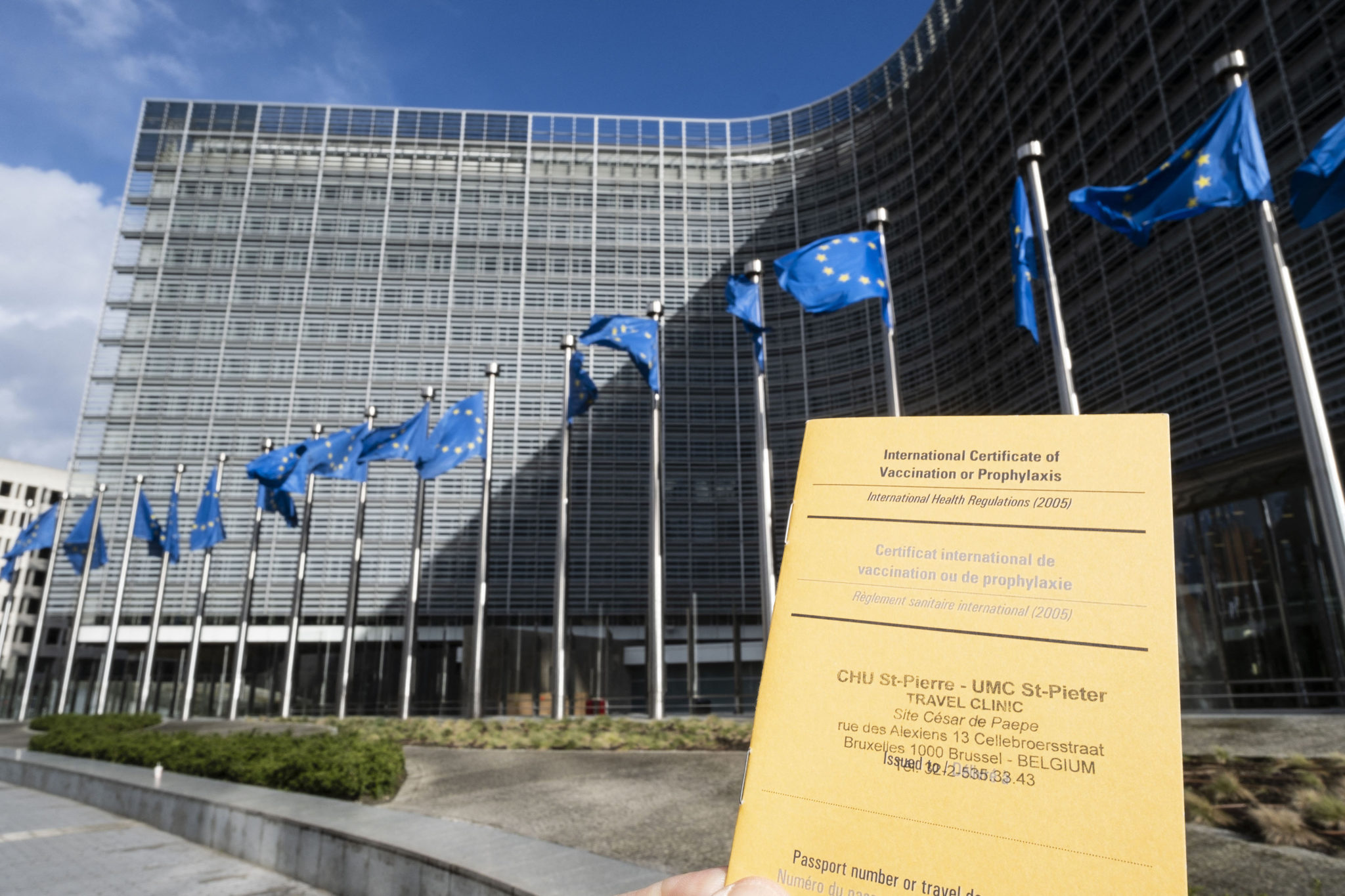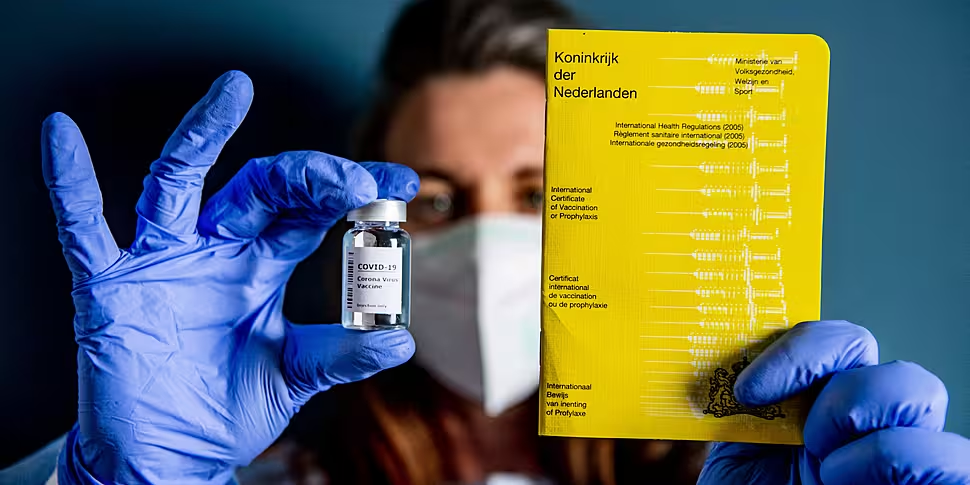People should not be required to be fully vaccinated against COVID-19 before they can travel internationally, according to a WHO official.
There has been much speculation in recent days about when foreign travel from Ireland might be permitted again.
On Wednesday Taoiseach Micheál Martin ruled out international travel returning before June, and said it will not be considered by the Cabinet next week.
Foreign Minister Simon Coveney also said people should not be booking holidays abroad for this summer - but a "gradual change" to the current approach to international travel is likely over the summer months.
Meanwhile, the Transport Minister Eamon Ryan said it will be "months rather than weeks" before non-essential international travel resumes.
He said he could see a case where Irish citizens with vaccine certificates could travel for non-essential reasons, such as holidays.
It comes as EU digital vaccine certificates are expected to be ready in June at the latest.
The vaccine passport could be used as proof that a person has been vaccinated against COVID-19, received a negative test result or recovered from the virus.
Dr Catherine Smallwood, Senior Emergency Officer at WHO Europe, said today that the EU strategy is welcome, but that vaccination should not be a prerequisite to travelling.
"Our position has been very much that we need to facilitate essential travel, that essential travel is absolutely a right," she told Newstalk Breakfast with Susan Keogh.
"We allow for specific requirements to be put in place on a basis of risk, so if there is a level of risk that is present for international travel then certain specific things, like testing, like quarantine in some countries, can be put in place and that needs to be determined on the basis of the national situation
"In terms of the vaccination, our position is very clear, vaccination should not be a condition to travel and people who have not received the vaccine should not be prevented from travelling.
"However, it could be that vaccination makes travel more easy for people have received their complete series of vaccination and they might do that by removing some of the more restrictive requirements that are placed on travellers."
 The European Union unveils a vaccine passport scheme to allow travel this summer. Photo by Monasse T/ANDBZ/ABACAPRESS.COM
The European Union unveils a vaccine passport scheme to allow travel this summer. Photo by Monasse T/ANDBZ/ABACAPRESS.COMDr Smallwood added: "I know the EU have put in place a strategy for that to happen before the end of the summer, that is something we would certainly endorse in term of looking at the level of risk and applying a risk basis
"The risk is not only the epidemiology in one country versus another, but is also the ability to say for an individual what is the risk of that person in terms of transmitting the disease or being immune from the disease, whether it's from vaccine-induced immunity or whether it's from having the disease very recently and having recovered."
She also acknowledged that coronavirus vaccine supply issues have "hampered the global response", not just in the EU.
"I think in the EU what we've seen is a quite well-organised distribution of vaccine through the procurement mechanism that has allowed all countries in the EU to move ahead in a gradual and relatively similar way," she said.
"Imagine if several countries had gone ahead and vaccinated completely and other countries were left without anything and I think moving ahead together is the message we've had at the WHO and I think that's happening in the EU as well."









